|
Ah, boondocking — wide-open spaces, beautiful views, quiet serenity, and economical cost. Since our rig is prepped with solar panels, generators, and large freshwater and wastewater tanks, we like to take advantage of dry camping when we can. An ultimate destination of Alaska in 2023 kept us in the West, providing abundant off-grid camping opportunities. Because of that, we did a lot more boondocking in our fourth year of RV travel than we did in the first three years combined. As a result, we feel much more experienced at it than we did when we got busted for camping where it wasn’t allowed. We’ve learned a lot since then about the importance of conserving all the water and electricity we can. That means reheating coffee and leftovers on the stove rather than in the microwave, among other things. Here are our favorite boondocking hacks that make living off the grid easy and enjoyable: 1. Plastic Grocery Bags One of the best practices of our boondocking success is using plastic grocery bags instead of tall kitchen trash bags to collect our waste. We learned this trick early on from full-time RVers Tom and Molly and continue to use it to this day. Because we don’t have a grocery-bag-size trash bin in our kitchen, we still line our normal-size waste can with a tall kitchen trash bag and hang the smaller grocery bag inside the larger bag, attaching it to two corners. This prevents messes from contents that don’t quite make it into the smaller bag. Plus, we can store about three full grocery bags in the tall kitchen bag. Then when we make a trip into town, we take the bags with us and deposit them in multiple bins for easy disposal. 2. Fat Trapper Another thing that helps with our trash situation is a gadget called the Fat Trapper (paid link). It’s a sealable plastic container that comes with heavy-duty bags for collecting grease and fat from cooking. We don’t want to put used oil and grease down our pipes because of odors and possible clogging — not to mention the water that would be required to wash it down. Nor do we want to put that in our trash bag as it could make a mess and sit there for a while, reeking, until we venture into town. 3. French-Press Coffee To avoid having to run our generators to make coffee every morning, we invested in a 50-ounce stainless steel French press (paid link). French presses work better with coarse-ground coffee than they do with what you can typically buy already bagged. For that reason, we purchased coffee beans and a manual coffee grinder (paid link) when we first moved into our fifth wheel. After a week or so, we traded elbow grease for a power drill to grind the coffee. That worked great. But then we got even smarter. We decided to buy whole beans and use an in-store grinder at the supermarket, allowing us to select the coarseness of the grind. Finding grocery stores that offered that feature during the pandemic became quite challenging, so we learned to stock up on bags of self-ground coffee before hitting the road for our annual trek. 4. Once-a-Day Dishwashing Because our freshwater supply and gray water tank capacity are limited when living off the grid, we let our dishes pile up in the sink and wash them only once a day. On rare occasions, we use paper dishes and plasticware, but those create more trash that we have to store until making a trip into town. If we’re camped at a place where campfires are allowed and firewood is abundant, we can burn our paper dishes. In reality, however, we don’t have campfires all that often. Another thing that can help with dishes is spraying dirty ones with a water/vinegar mixture from a spray bottle before leaving them in the sink. This can make the eventual cleaning process easier. Along those same lines, we often wipe food remnants from our plates and bowls using a napkin or paper towel before leaving them in the sink. 5. Prewashed and Sliced Produce In addition to washing dishes only once a day to cut down on water use, we try to buy pre-washed and pre-sliced produce when stocking up for a boondocking adventure. This can save quite a bit of water that we would have used to wash mushrooms, for example. That may not sound like a big savings, but cleaning produce uses more water than you might think. Tasks we took for granted in our sticks-and-bricks home aren’t always optional when boondocking. 6. Cast-Iron Skillet One of our best buys that we use on a daily basis is a 10-inch cast-iron skillet (paid link). After seasoning it well, it cooks great food evenly, helps us maintain healthy iron levels, and is easy to clean — saving water. Most uses require only wiping the pan with a paper towel and adding a little more oil to it. 7. Window Shades for Temp Control Our RV came equipped with two shades on each window: a privacy screen and a black-out shade. The latter came in quite handy in Alaska’s land of the midnight sun. We use both shades to keep the interior of our rig temperate. Closing the screens on cold nights helps prevent warmth from escaping. And closing them on warm days helps keep the inside temperature tolerable.
You might also like 12 Best RV-Related Purchases. * As Amazon Associates, we earn from qualifying purchases.
2 Comments
Andrew D Bogan
11/15/2023 11:58:24 am
Aww, cute smiley face in the frying pan
Reply
Carole Grijalva
11/15/2023 09:54:21 pm
It is truly been some kind of a journey.. How wonderful you get to experience so many things that very few even know that exists. Thank you for taking us along and allowing us to see through your eyes
Reply
Leave a Reply. |
AuthorThis is the travel blog of full-time RVers Bob and Lana Gates and our truck, Gulliver, and fifth wheel, Tagalong. Categories
All
Archives
July 2024
|
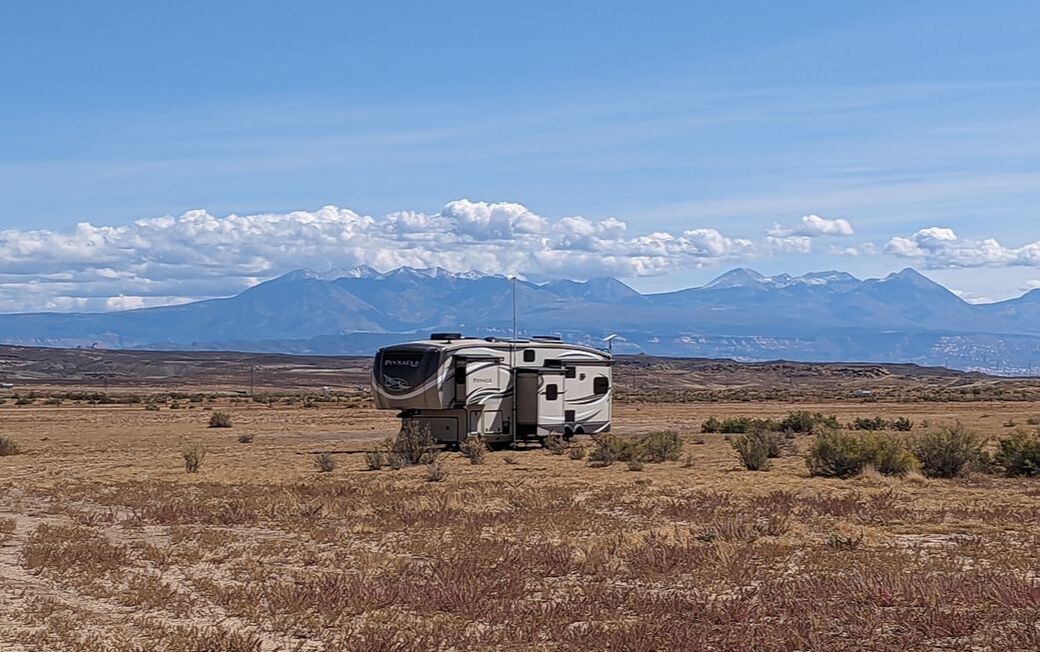
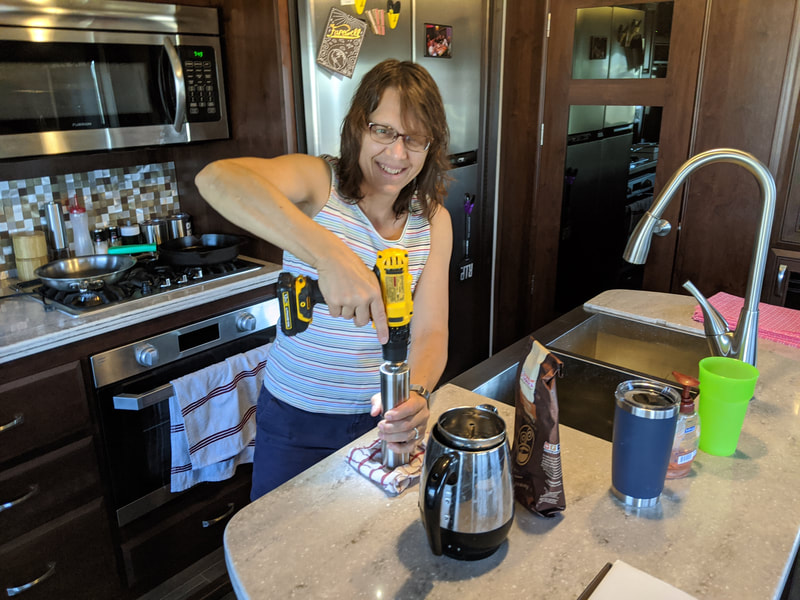
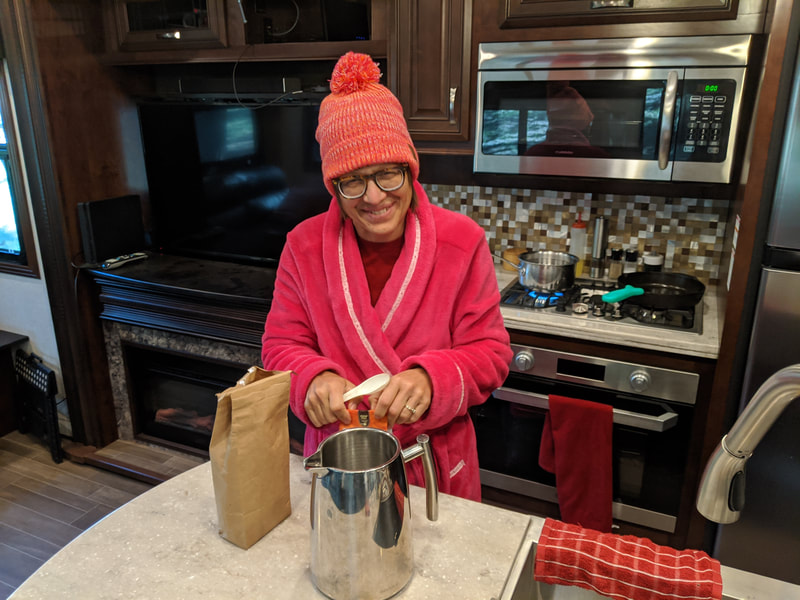
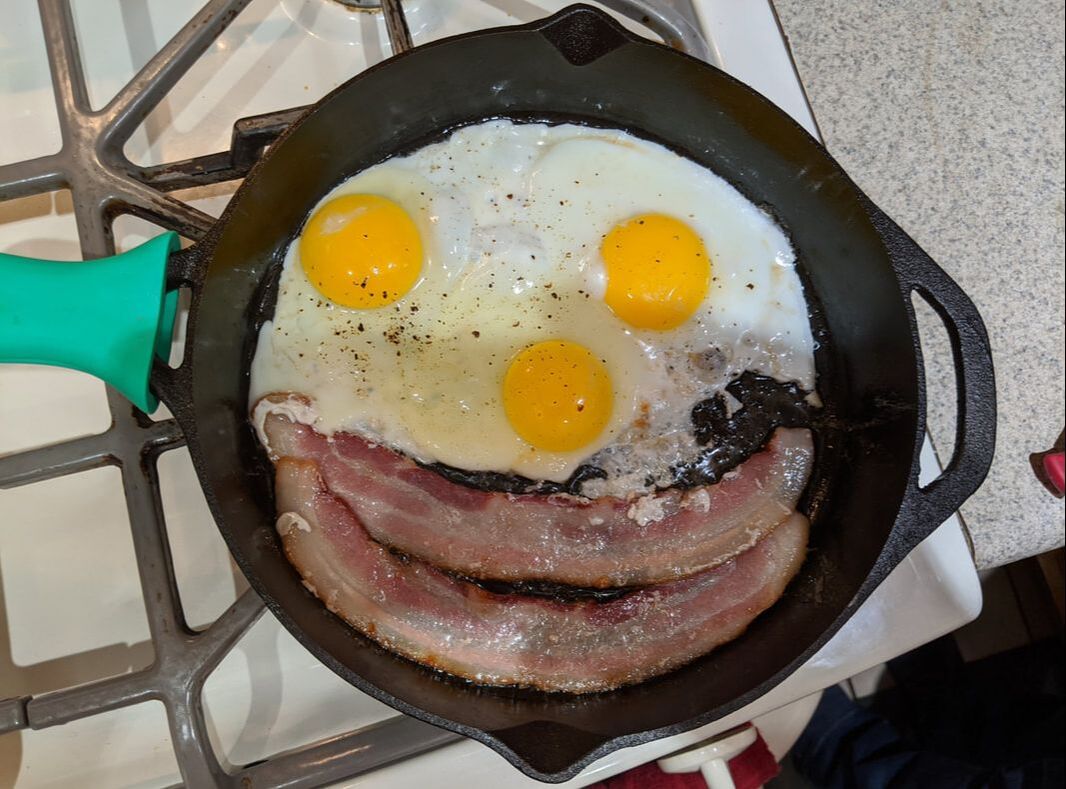
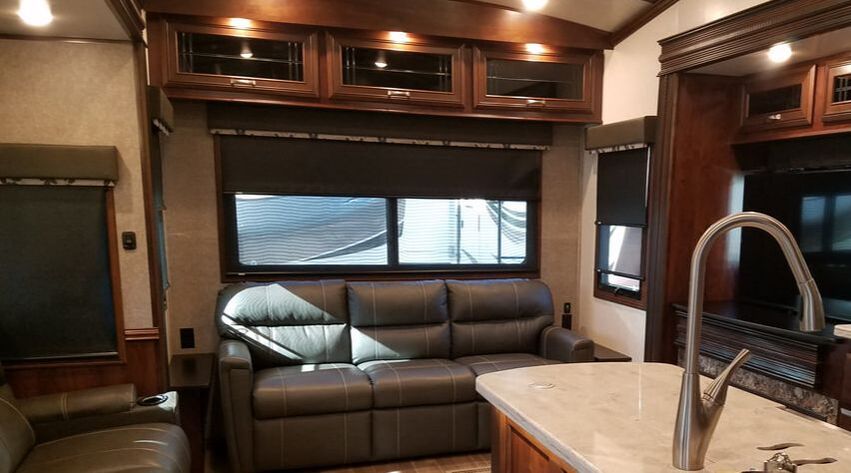
 RSS Feed
RSS Feed